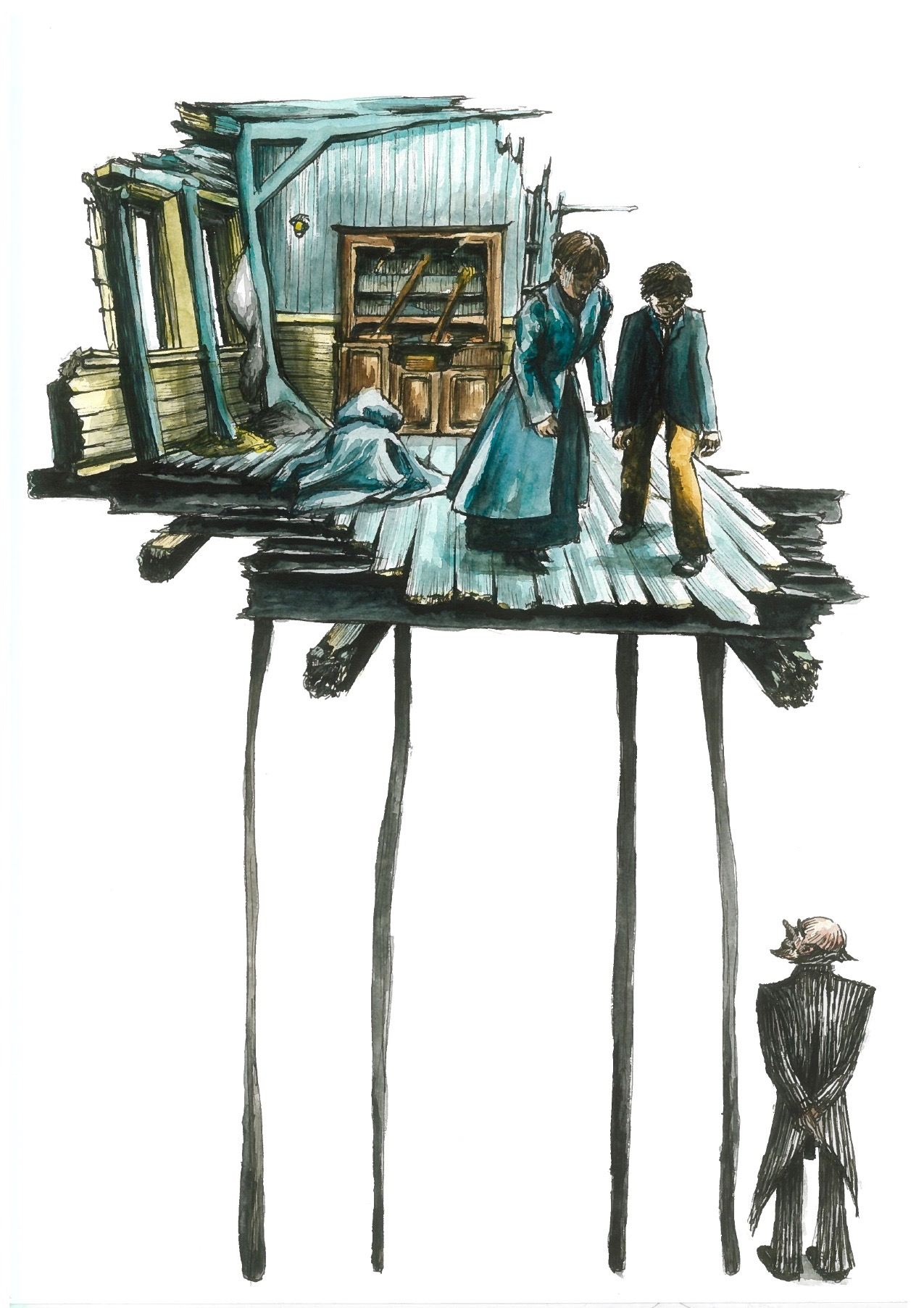Netflix recently released a preview for a new upcoming series: A Series of Unfortunate Events. Now that it’s confirmed as part of the Netflix family, the surprisingy mature children’s series seems to be coming back into the public eye.
The original book series, written by Daniel Handler under the pseudonym Lemony Snicket and illustrated by Brett Helquist, centres on the orphaned Baudelaire siblings (Violet, Klaus, and Sunny) as they seek safety after the tragic deaths of their parents. However, Count Olaf–a villain who stalks the children to steal their fortune–constantly thwarts their attempts and the children pass through the hands of several horrible guardians, who each meet grim ends at the hands of the Count.
The series is witty, dark, charismatic, and filled with a litany of historical and literary references. The prose of the series is neatly polished and Handler masterfully alludes to mature themes with surreal elements that echo Edward Gorey or Tim Burton’s gothic and whimsical fantasies.
In the first few books, the adult characters in the series are almost entirely corrupt. In response, the Baudelaires idealize their deceased parents and transform them into allegorical figures of home and safety. As the series progresses, the children realize that their parents were not entirely guiltless or greedless. In fact, they may have initiated the series of unfortunate events when they organized the murder of Count Olaf’s parents.
Count Olaf, in the later novels, becomes an increasingly tragic figure caught in a cycle of revenge. As the children mature, their experiences complicate their understanding of the world as a binary of good and evil. They realize that no one, not even themselves, is completely morally sound. Only once they make this realization do the children become self-subsisting and independent.
Netflix isn’t the first to adapt the stories to the screen. The 2004 film, Lemony Snicket’s A Series of Unfortunate Events, heightened the comedic elements of the series, most notably by casting Jim Carrey as Count Olaf. The dark tale plays out well on the screen; Thomas Newman’s haunting score and the cast, which included Emily Browning, Meryl Streep, and Billy Connolly add gravitas to an otherwise light-hearted film. However, the movie only adapts the first three novels and as a result fails to touch on the fact that the crux of the siblings’ maturity comes not when they leave their guardians, but when they realize that their parents were not without flaws.
The books hinge upon the question of what it means to be a child transitioning to adulthood, especially without parents. The Baudelaires never stop loving their parents; they do, though, stop relying on their memory as a guidepost and learn to make their way through life without them. The series represents the children coming to terms with the death of their parental figures and moral guides, and the path toward independence. Hopefully the Netflix production, with its increased screen time, will flesh out these themes where the film did not.
It is too early to discern whether or not the Netflix series will attempt to follow in the 2004 film’s footsteps or whether it will attempt to grapple with the darker topics that the books confront. The series will star Neil Patrick Harris as Count Olaf. Harris is known for his comedic chops from his work in How I Met Your Mother and Dr. Horrible’s Sing-Along Blog. Undoubtedly, the series requires comedic and absurd tones in order to be successful—however, the extent to which Netflix will address the more sobering themes that the novels contain remains to be seen.
A Series of Unfortunate Events will premiere on Netflix on Jan. 13 2017.









